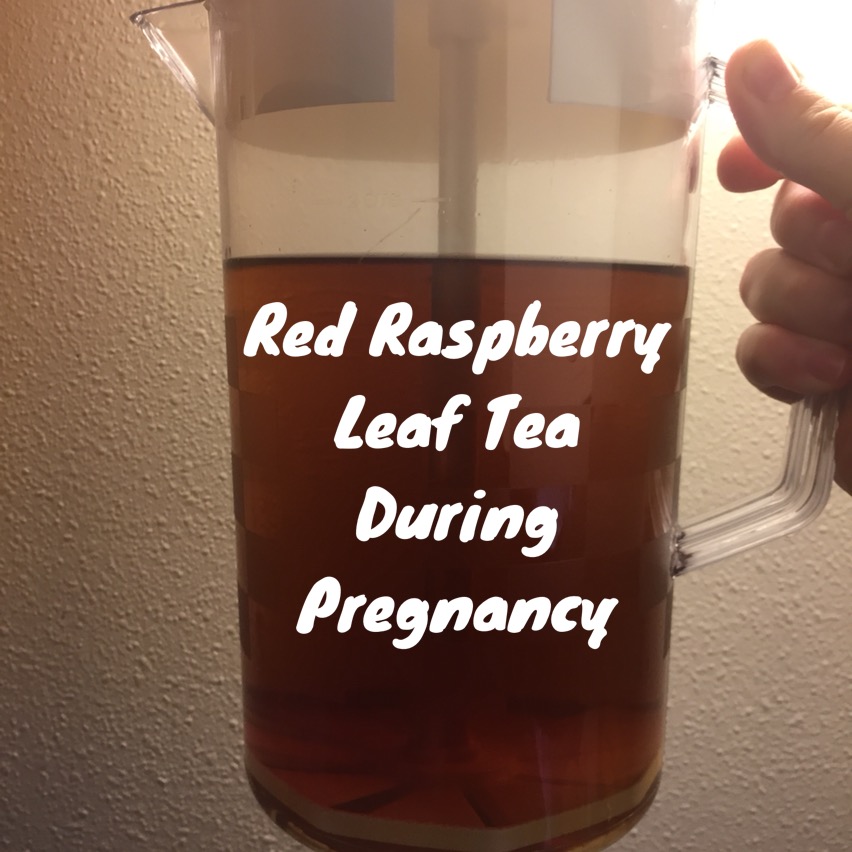When To Drink Raspberry Leaf Tea In Pregnancy: A Comprehensive Guide
Pregnancy is a delicate yet exciting phase in a woman's life, and making informed decisions about nutrition and health is crucial. One popular herbal remedy often discussed is raspberry leaf tea. When to drink raspberry leaf tea in pregnancy is a question that many expecting mothers ask, and it's important to have accurate information to ensure both maternal and fetal well-being.
Raspberry leaf tea has been used for centuries in traditional medicine to support pregnancy and childbirth. This herbal tea is believed to strengthen the uterine muscles, ease labor, and promote overall maternal health. However, timing and proper usage are essential to maximize its benefits while minimizing potential risks.
In this article, we will explore the best times to consume raspberry leaf tea during pregnancy, its potential benefits, risks, and guidelines for safe consumption. By the end of this guide, you will have a clear understanding of how to incorporate this herbal remedy into your pregnancy journey safely and effectively.
Read also:Fast Amp Furious 11 Plot What We Know So Far And What To Expect
Table of Contents
- Introduction
- Benefits of Raspberry Leaf Tea in Pregnancy
- When to Drink Raspberry Leaf Tea in Pregnancy
- Potential Risks and Side Effects
- Recommended Dosage
- How to Prepare Raspberry Leaf Tea
- Alternatives to Raspberry Leaf Tea
- Consulting Your Healthcare Provider
- Frequently Asked Questions
- Conclusion
Introduction
Raspberry leaf tea is a popular herbal remedy that has been used for generations to support pregnancy and childbirth. Made from the leaves of the raspberry plant, this tea is rich in nutrients and antioxidants, making it a natural choice for many expecting mothers. However, understanding when to drink raspberry leaf tea in pregnancy is critical for ensuring safety and effectiveness.
Pregnancy is a time when the body undergoes numerous changes, and it's important to prioritize health and well-being. Herbal remedies like raspberry leaf tea can offer benefits, but they must be used with care. This article will provide a detailed overview of the role of raspberry leaf tea in pregnancy, including its benefits, risks, and proper usage.
Benefits of Raspberry Leaf Tea in Pregnancy
Rich in Nutrients
Raspberry leaf tea is packed with essential nutrients, including vitamins, minerals, and antioxidants. These nutrients can help support overall maternal health during pregnancy. Some of the key nutrients found in raspberry leaf tea include:
- Vitamin C
- Iron
- Calcium
- Magnesium
- Antioxidants
Supports Uterine Health
One of the primary reasons raspberry leaf tea is recommended during pregnancy is its ability to strengthen uterine muscles. The active compounds in the tea, such as fragarine, are believed to tone the uterine walls, potentially leading to shorter and less painful labor.
Promotes Postpartum Recovery
Drinking raspberry leaf tea during pregnancy may also aid in postpartum recovery. It is believed to help reduce postpartum bleeding and support the body's natural healing process after childbirth.
When to Drink Raspberry Leaf Tea in Pregnancy
The timing of raspberry leaf tea consumption is crucial for maximizing its benefits. Most healthcare professionals recommend starting raspberry leaf tea in the third trimester, typically around week 32 of pregnancy. This timing allows the tea to work effectively without interfering with the early stages of pregnancy.
Read also:Exploring Kalenna Net Worth A Deep Dive Into Her Career And Achievements
Why Wait Until the Third Trimester?
During the first and second trimesters, the body undergoes significant hormonal and physiological changes. Introducing raspberry leaf tea too early may stimulate uterine contractions, which could pose risks to the developing fetus. Waiting until the third trimester ensures that the tea's effects align with the body's natural preparation for labor.
Potential Risks and Side Effects
While raspberry leaf tea is generally considered safe for most pregnant women, there are potential risks and side effects to be aware of. These include:
- Uterine contractions: Raspberry leaf tea may cause mild uterine contractions, especially if consumed in large quantities.
- Allergic reactions: Some individuals may experience allergic reactions to the tea, such as skin rashes or digestive discomfort.
- Interference with medications: Raspberry leaf tea may interact with certain medications, so it's important to consult your healthcare provider if you are taking any prescription drugs.
Recommended Dosage
Consuming raspberry leaf tea in moderation is key to avoiding potential side effects. Most experts recommend starting with one cup per day and gradually increasing to two or three cups per day in the third trimester. Always listen to your body and adjust the dosage as needed.
Tips for Safe Consumption
Here are some tips for safely consuming raspberry leaf tea during pregnancy:
- Start with a small amount and monitor your body's response.
- Choose high-quality, organic tea to avoid contaminants.
- Do not exceed the recommended dosage unless advised by your healthcare provider.
How to Prepare Raspberry Leaf Tea
Preparing raspberry leaf tea is simple and can be done at home. Follow these steps for a delicious and nutritious cup of tea:
- Boil fresh, clean water in a pot or kettle.
- Add one to two teaspoons of dried raspberry leaf to a tea infuser or directly into the cup.
- Pour the hot water over the leaves and let it steep for 5-10 minutes.
- Strain the tea and add honey, lemon, or milk if desired.
Alternatives to Raspberry Leaf Tea
If you are unable to consume raspberry leaf tea or prefer other options, there are several alternatives that can support pregnancy health:
- Nettle tea: Rich in iron and other nutrients, nettle tea is a great option for boosting energy levels.
- Ginger tea: Known for its anti-nausea properties, ginger tea can help alleviate morning sickness.
- Chamomile tea: A calming herbal tea that promotes relaxation and better sleep.
Consulting Your Healthcare Provider
Before incorporating any herbal remedy into your pregnancy routine, it's essential to consult your healthcare provider. They can provide personalized advice based on your unique health needs and circumstances. This ensures that you are making safe and informed decisions for both you and your baby.
What to Discuss with Your Doctor
When speaking with your healthcare provider about raspberry leaf tea, consider discussing the following:
- Your current health status and any underlying conditions.
- Medications or supplements you are currently taking.
- Your planned dosage and timing of consumption.
Frequently Asked Questions
Can raspberry leaf tea induce labor?
Raspberry leaf tea is not a guaranteed method for inducing labor, but it may help prepare the body for childbirth by toning the uterine muscles.
Is it safe to drink raspberry leaf tea during the first trimester?
It is generally recommended to avoid raspberry leaf tea during the first trimester due to the risk of stimulating uterine contractions.
Can raspberry leaf tea replace medical care during pregnancy?
No, raspberry leaf tea should not replace professional medical care. It is a complementary remedy that can support overall health but should not be relied upon as a sole source of prenatal care.
Conclusion
When to drink raspberry leaf tea in pregnancy is a question that requires careful consideration. This herbal remedy offers numerous potential benefits, including supporting uterine health and promoting postpartum recovery. However, timing and dosage are critical to ensuring safety and effectiveness. By following the guidelines outlined in this article and consulting your healthcare provider, you can incorporate raspberry leaf tea into your pregnancy routine with confidence.
We encourage you to share your thoughts and experiences in the comments section below. If you found this article helpful, please consider sharing it with others who may benefit from the information. For more expert advice on pregnancy and wellness, explore our other articles and resources.
Article Recommendations


